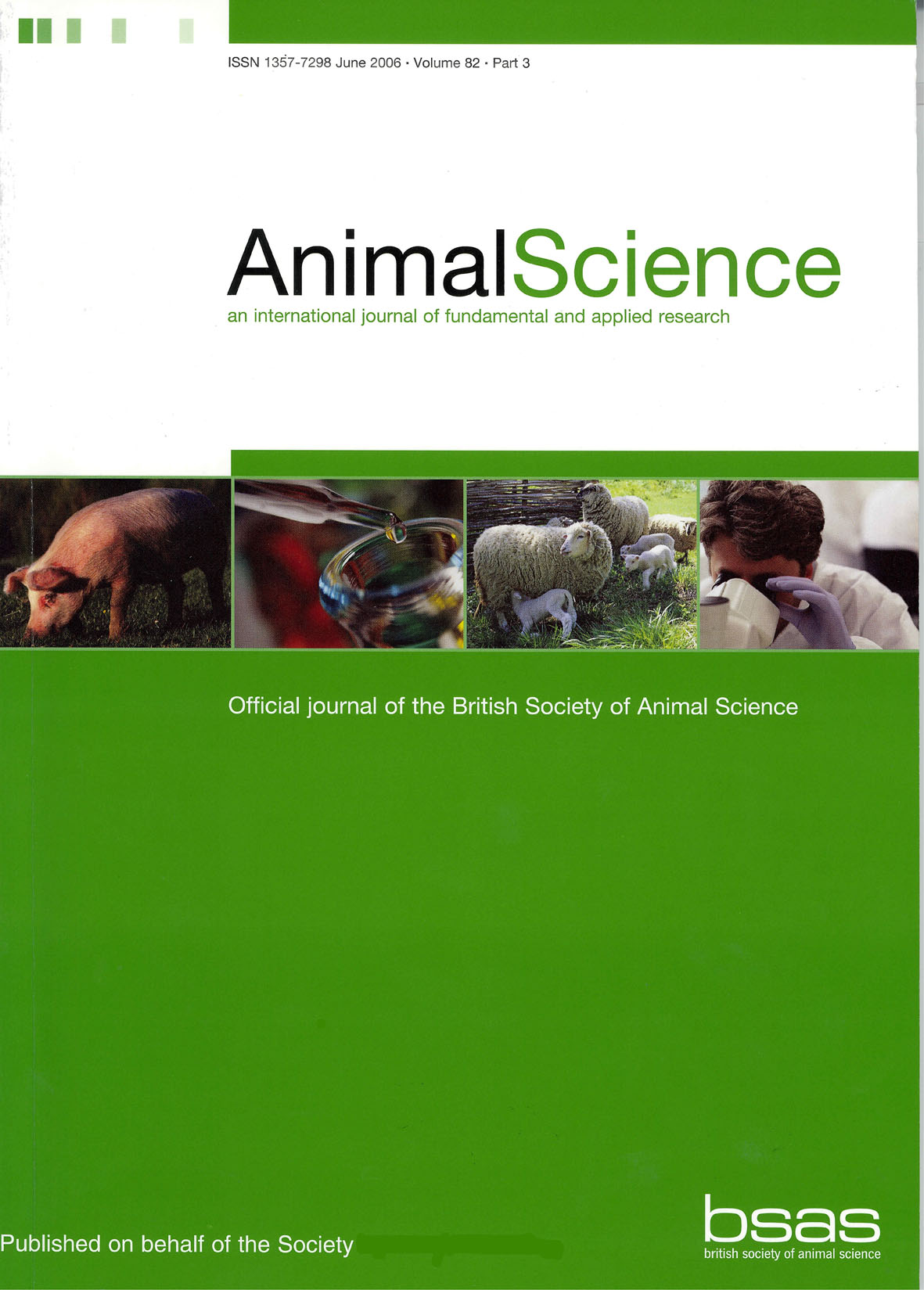No CrossRef data available.
Article contents
Effect of amount of rumen degradable protein on the utilization of wheat straw by Dohne Merino wethers
Published online by Cambridge University Press: 18 August 2016
Abstract
A 5 ✕ 5 Latin square was conducted with ruminally and duodenally cannulated Dohne Merino wethers consuming wheat straw to determine the effect of different rumen degradable protein (RDP) levels on forage intake, fermentation characteristics, nutrient flow and digestion. The wethers had ad libitum access to water and wheat straw (32 g crude protein (CP) per kg dry matter (DM); 742 g neutral-detergent fibre (NDF) per kg DM) that was offered twice daily, immediately after intraruminal infusion of the supplements at 07:00 and 19:00 h. The supplemental RDP (calcium caseinate; 900 g CP per kg DM) levels were: 0, 40, 80, 120 and 160 g/day. Each period consisted of 14 days of adaptation and 6 days of sampling. Forage and total organic matter (OM) intakes increased in a linear manner (P < 0•01) with increasing supplemental RDP levels. Digestible organic matter intake (DOMI) displayed a quadratic increase with elevated amounts of RDP (P < 0•01). The effects of treatments on rumen and total tract digestion, as well as fluid dilution rate were minimal. Microbial nitrogen (MN) flow to the duodenum and microbial efficiency increased quadratically (P < 0•04) with increased RDP supplementation. Rumen ammonia nitrogen (NH3-N) concentrations increased linearly (P < 0•01) and total volatile fatty acids (VFA) tended to increase linearly (P = 0•07). In conclusion, RDP supplementation to Dohne Merino wethers consuming wheat straw generally enhanced rumen fermentation and forage intake. A total RDP intake (sources: calcium caseinate and wheat straw) of 3•30 g/kg M0•75 or 0•12 of DOM maximized DOMI.
Keywords
- Type
- Ruminant nutrition, behaviour and production
- Information
- Copyright
- Copyright © British Society of Animal Science 2003


